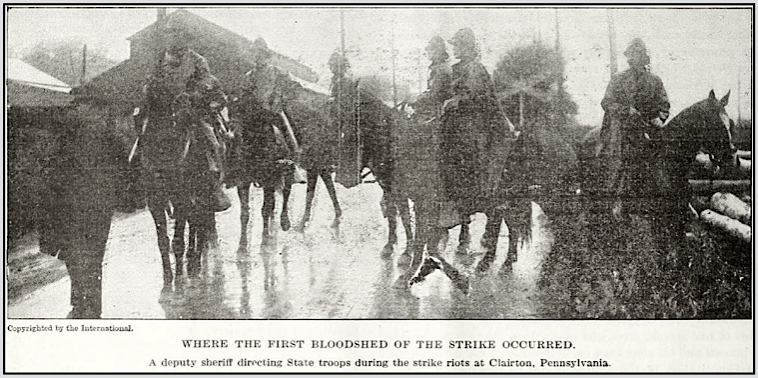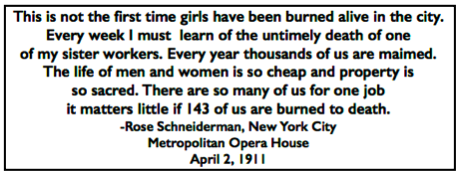 —————
—————
Hellraisers Journal – Sunday April 9, 1911
Mass Meeting at Metropolitan Opera House Stands for Fire Prevention
From The Survey of April 8, 1911:
THE COMMON WELFARE
PREVENTION OF FACTORY FIRES
Prevention was the keynote of the whole week in discussion of the Triangle factory fire in New York and in other industrial cities which have begun to take stock of their risks. There were many meetings, chief of which was the citizens’ mass meeting at the Metropolitan Opera House, reported on succeeding pages, which resulted in the appointment of a committee of five made up of Eugene A. Philbin, chairman; Mary A. Dreier, Edward T. Devine, William Jay Schieffelin, Lillian D. Wald, and Peter Brady. The New York American has organized a committee on prevention of which Ernest Flagg, an eminent architect, is chairman and the other members are Fire Chief Croker, P. Tecumseh Sherman, formerly state commissioner of labor, and William Archer, a builder.
A conference under call of R. Fulton Cutting, president of the Association for Improving the Condition of the Poor, appointed a committee consisting of Mr. Cutting, Franklin B. Kirkbride, Leopold Plaut, Homer Folks and John A. Kingsbury which, in conjunction with the mass meeting committee, is organizing a permanent body on fire prevention.
On Wednesday (after this issue had gone to press) public burial was given the eight unclaimed bodies and the workers of the city planned an enormous silent parade in their honor.
One of the events of the week was the opening of the Triangle Waist Company in another building. A violation of the law was immediately filed against it for installing a row of sewing machines in front of the exit to the fire-escapes. The proprietor asked the Ladies ‘ Shirtwaist Union to organize his shop, but no action was taken.

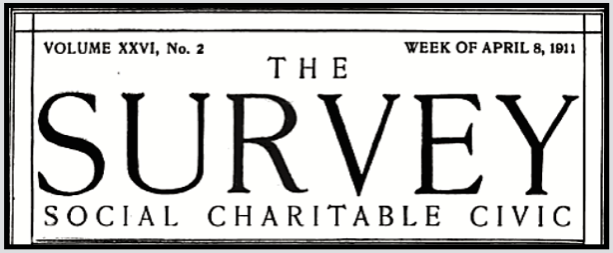
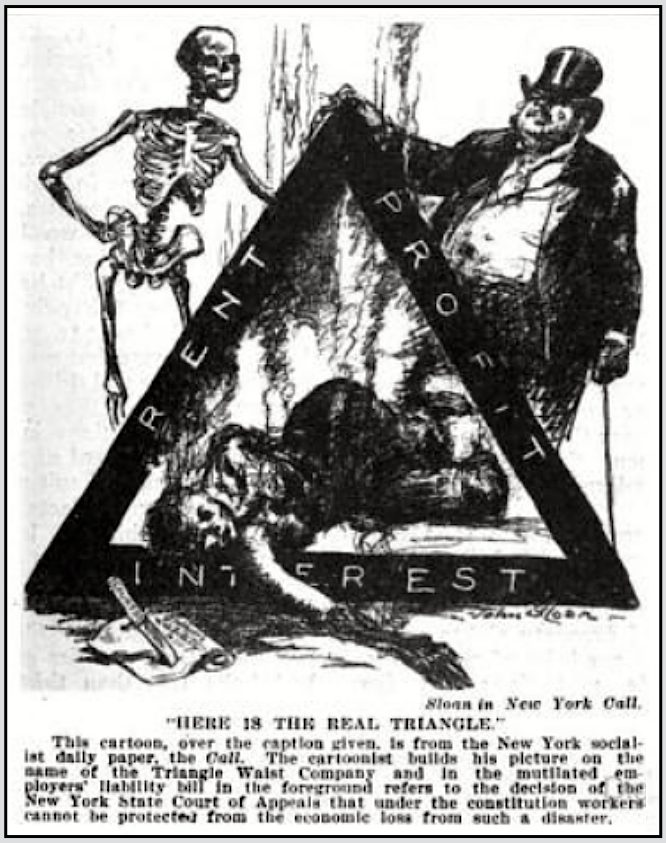
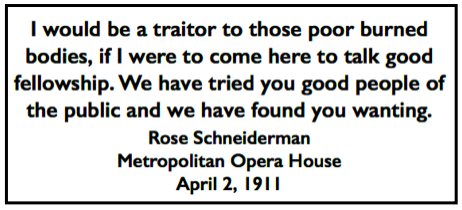 ———-
———-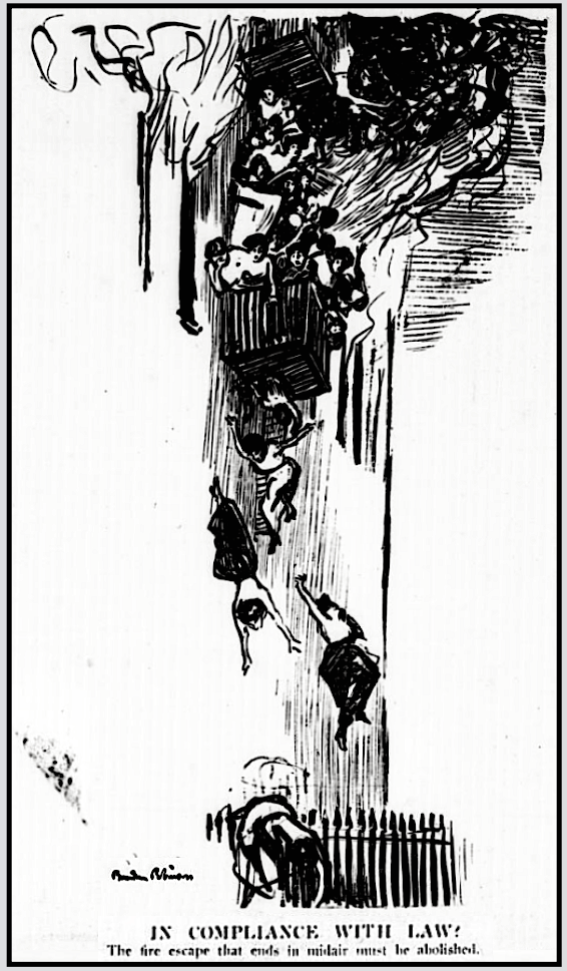
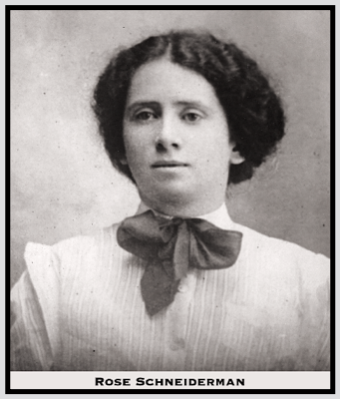
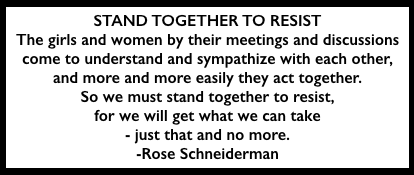 ———-
———-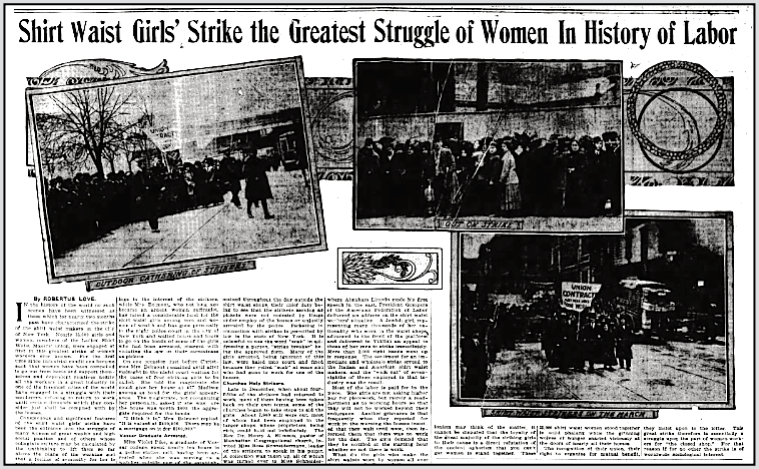 —–
—– ———-
———-